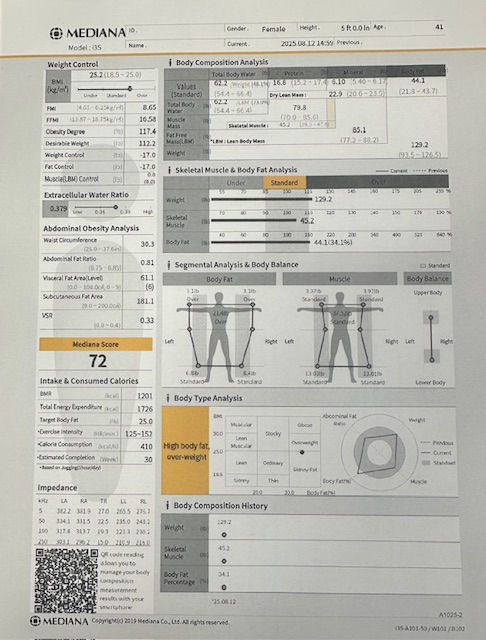Serotonin: How low levels can wreck you & how to increase it
- Havilah Brodhead, RN, MSN, FNP

- Jun 13, 2020
- 7 min read
Updated: Jun 13, 2020

In family medicine, some of the most common complaints patients come in with include anxiety, sleep issues, chronic pain, poor digestion, headaches, and fatigue.
As a provider who integrates both plant medicine and prescriptions into my patient’s care (integrative medicine), I believe in the mind-body connection. Often with symptoms, it is a “what came first, the chicken or the egg?” scenario.
By way of brief introduction, I am a nurse practitioner trained in family medicine with experience in integrative medicine. I have a passion for helping patients with anxiety and depression because I’ve experienced it personally. I left a fast-paced primary care practice seeing 25+ patients a day, 10-15 minutes at time, to start my own practice, Hearthside Medicine Family Care. Now, I limit my day to 8-10 patients and spend 30-60 minutes on average with them at each appointment so I can help patients identify the root cause of their symptoms.
Chronic pain can cause depression and anxiety. Poor sleep can cause depression and anxiety. Chronic inflammation and uncontrolled blood sugars can cause depression and anxiety. Improper digestion can lead to depression and anxiety. But if you flip the pic, depression, stress, or anxiety that go insidiously unaddressed can also cause chronic pain, poor sleep, weight problems, headaches, irritable bowel syndrome, and much more.

Regardless of what came first, I want to help patients stop the cycle. Being stuck in this cyclone can feel isolating and be devastating; it can rob us of quality of life—I know, because I’ve been there.
So how to interrupt the cycle, you ask?
Of course we need to identify the root cause—which is why finding a provider who is willing to take the time to investigate with you is crucial. It is also crucial to recognize that what likely took years to develop may not be solved overnight. You and your provider may have to meet several times to get to the root cause.
Sometimes, my patients and I discover that the root cause is an underlying autoimmune disorder, sleep disorder, hormone imbalance, food allergy, genetic disorder, etc. Sometimes we discover that unaddressed trauma, stress, or childhood depression is the root cause.
In almost all of these scenarios, we need to help the body retain and make more serotonin—the chemical in the brain that becomes depleted with chronic pain, chronic digestive issues, chronic stress or anxiety, poor sleep, poor nutrition, etc.

To help the body restore proper serotonin levels, which helps the body regulate its pain response, appetite, digestion, sleep, energy, mood, libido, and more, we can use plant-based medicine, food, supplements, prescription medications, or a combination of all of these. Working with a therapist to re-train the soft-wiring of the brain to aid in physical and emotional response is also often a critical component. This can be done with talk therapy, EMDR, Cognitive Behavioral Therapy, or neurofeedback techniques.
So what are my options to increase serotonin?
Well, when it comes to prescriptions for anxiety and depression, there are seven main categories of medications often prescribed. Exercise, therapy, meditation, sufficient sleep, and quality nutrition are all highly effective and necesary as well for increasing serotonin. There are also many herbal/plant-based medicines available, which I have an entirely separate blog about found here: Calming Anxiety and Insomnia Without Meds

The purose of this particular blog is highlight conventional prescription options, but please refer to my other blog above if you'd like to incorporate integrative medicine options into your care.
Prescription options:
Selective Serotonin Reuptake Inhibitors (SSRI)
For patients with frequent anxiety or difficulty sleeping or depression, I will often advise selective serotonin reuptake inhibitors (SSRIs) if they do not first wish to try other measures or plant-based medicine. SSRIs are mostly know as antidepressants, but they are commonly prescribe them to people with anxiety and obsessive-compulsive disorder (OCD).

SSRIs work by helping your brain maintain normal levels of the neurotransmitter serotonin, which we need to regulate our mood, energy, thinking, appetite, sleep, libido, and more.
Examples for anxiety include:
citalopram (Celexa)
escitalopram (Lexapro)
fluoxetine (Prozac)
fluvoxamine (Luvox)
paroxetine (Paxil, Pexeva)-not preferred for women of childbearing age
sertraline (Zoloft)

Pearls:
Don’t work immediately but tend to take effect within 2 to 6 weeks
Not habit-forming (don’t lead to dependence)
Cannot be suddenly stopped-must taper off slowly over a couple weeks
Most patients describe the effect as “subtle but life-changing”
Many of these are safe during pregnancy and breastfeeding
Alert!
People under 25 years of age may experience an increase in suicidal thoughts and behaviors while taking antidepressants, particularly within the first few weeks of use.
Side effects
SSRIs can cause a variety of side effects, but most people do not have any. Often, side effects only last for the first 1-2 weeks while the body is adjusting to the new medications.
Side effects can include:
Nausea, dry mouth, diarrhea, dizziness, drowsiness, sexual dysfunction (decreased sex drive or difficulty having an erection), insomnia (or improved sleep, conversely), vivid dreams, weight gain (some SSRIs are “weight neutral”, meaning no evidence of weight gain)
Serotonin-norepinephrine reuptake inhibitors
Serotonin-norepinephrine reuptake inhibitors (SNRIs) are another class of antidepressant that treats depression AND/or anxiety. Doctors may also prescribe them to treat some chronic pain conditions.
These medications work by helping the brain maintain normal levels of the chemicals serotonin and norepinephrine.
Examples of SNRIs for anxiety are:
duloxetine (Cymbalta)-often prescribed if there is chronic pain involved
venlafaxine (Effexor XR)

Pearls
As with SSRIs, SNRIs can take several weeks to have an effect.
Side Effects
Like SSRIs, side effects only occur in some people-many others have no side effects, or only have side effects for the first 1-2 weeks of use.
May include constipation, dizziness, drowsiness or fatigue, dry mouth, headaches, increased blood pressure, weight gain, loss of appetite, nausea, sexual problems or erectile dysfunction, sleep problems (or relief of sleep issues), sweating more than usual, an upset stomach
Tricyclic antidepressants
Tricyclic antidepressants (TCAs) are an older class of anti-depressant drug.
Pearls
We providers often prescribe SSRIs instead, as they cause fewer side effects.
May be useful for some people, especially if other medications do not provide relief
May be useful for sleep or headaches as well
Examples of TCAs for anxiety include:
amitriptyline (Elavil)—often used at low doses before bed for headaches and sleep issues as well
imipramine (Tofranil)
nortriptyline (Pamelor)

Side Effects:
Dizziness, drowsiness, lack of energy, dry mouth, nausea, constipation, blurred vision, and weight gain, blurry vision, difficulty urinating, increase in appetite, sexual problems or erectile dysfunction, sweating more than usual, tremors, weight loss or gain.
Benzodiazepines
Benzodiazepines, a sedative drug, encourage relaxation, and their effects take place within a few minutes. Some last in the system for just a few hours, while others last for many hours in the system.
Pearls
Not usually prescribed for daily anxiety
Best used for occasional anxiety/panic attacks
Can be very habit-forming, addictive
If taking long-term, must discontinue slowly or seizures can occur
Can cause confusion, increase risk of falling, and result in short-term memory difficulty
At times, people may take a benzodiazepine with an SSRI for a few weeks until the SSRI takes effect.
May be used as a *temporary* sleep aid for anxiety-related insomnia

Benzodiazepines include:
alprazolam (Xanax)-short-acting
clonazepam (Klonopin)—long-acting
diazepam (Valium)
lorazepam (Ativan)
Side effects may include:
blurry vision, confusion, dizziness, drowsiness or fatigue, headaches, loss of memory or concentration, problems with balance, coordination, or speech, an upset stomach
Alert! Benzodiazepines can cause physical dependence, even after a short period of use. Withdrawal from benzodiazepines may lead to:
• anxiety and restlessness
• depression
• sleep problems
• sweating
• seizures
More severe risks of benzodiazepines may include:
• addiction
• cognitive decline
• hip fractures
• motor vehicle accidents, as they can affect a person’s ability to drive
• overdose, especially in combination with opioid drugs or alcohol
Beta-blockers
Beta-blockers reduce the effects of norepinephrine, a stimulating chemical in the body. They work well for reducing anxiety in certain people. They can be used daily or just “as needed.”

Pearls:
Commonly used for high blood pressure and heart conditions but help for anxiety in certain situations
Not habit-forming
Not appropriate for those with low-resting heart rates
Examples:
atenolol (Tenormin)
propranolol (Inderal)
Side Effects:
Possible side effects include: cold hands and feet, depression, extreme tiredness, low blood pressures or heart rate, shortness of breath, sleep problems, headaches, weight gain
Alert!
Buspirone
Pearls
May treat short- or long-term anxiety
Works more slowly than benzodiazepines
Causes fewer side effects than some anxiety meds
Much lower risk of dependency than some anxiety meds

Side effects
The side effects of buspirone may include: blurry vision, diarrhea, dizziness, drowsiness, dry mouth, fatigue, headaches, muscle pains, nausea, poor concentration, restlessness or nervousness, sleep problems, sweating, weakness
Summary
Find a provider that works well with you and has time to explore the root cause. At Hearthside Medicine, we are accepting new patients and take most insurance or offer a cash-pay option.
It may take time to find the right treatment plan for your needs. If a person notices any side effects from their medication, they should speak to their provider or pharmacist.
To alleviate side effects, your provider may adjust the dosage slowly or recommend another medication or form of therapy.

If taking herbal medicine or supplements with your prescription, please discuss with a provider who is knowledgeable about possible interactions.
It is essential never to stop taking medication without medical supervision as it may cause withdrawal symptoms.
People under 25 years of age may experience an increase in suicidal thoughts and behaviors while taking antidepressants, particularly within the first few weeks of use.
The National Suicide Prevention Lifeline is 1-800-273-TALK (8255), and it is available 24 hours a day, 7 days a week.
And lastly, working with a mental health therapist is crucial. Here is a list of local therapists who also offer telehealth/remote options via phone/video: https://www.hearthsidemedicine.com/others-offering-telehealth

About the author:
Havilah Brodhead, RN, MSN, Clinical Nurse Leader, Family Nurse Practioner
Havilah is a mother to Ruby (3) and Makaylah (4). She LOVES to mountain bike, practice yoga, swim, camp, travel. She and her husband (also a nurse practitioner) are active in their Bend, Oregon community in social justice. Havilah also runs Central Oregon Advanced Practice Providers (COAPP), a medical education group for all local healthcare providers and professionals. She loves to write, educate, learn and grow professionally. Havilah owns Hearthside Medicine Family Care, an integrative primary care medical practice for children and adults in Bend, Oregon. Learn more about Hearthside Medicine at www.hearthsidemedicine.com






https://hrtmedical.net/ is a website that provides information on hormone replacement therapy (HRT). The website includes articles on the benefits and risks of HRT, as well as information on the different types of HRT.
Anxiety, stress and fatigue are the main problems of modern man. What to do about it? What depression programs to choose?